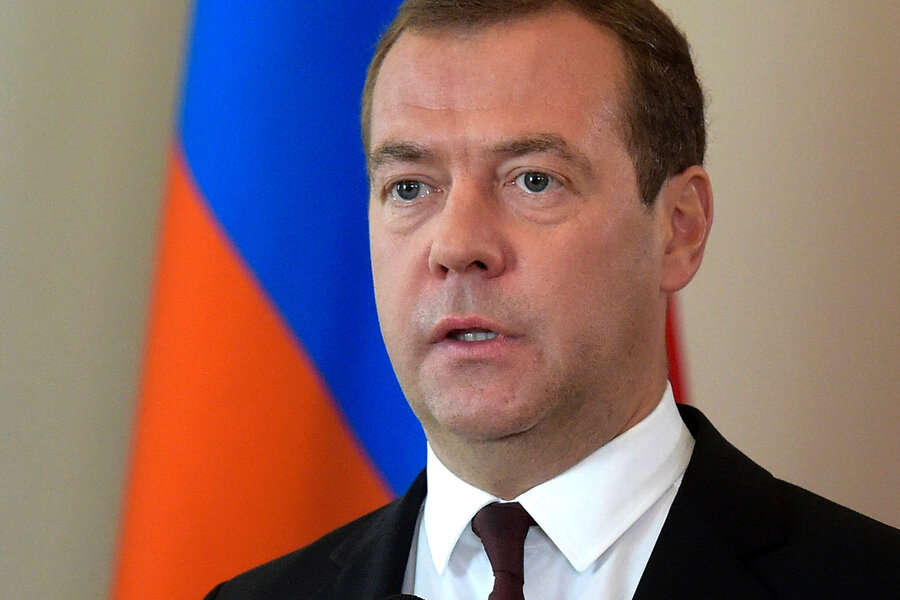Why Russia may sever diplomatic ties with Ukraine
Loading...
| Moscow
Prime Minister Dmitry Medvedev said Friday Russia could break diplomatic ties with Ukraine over reported security incidents in Crimea, something it didn't even do after annexing Crimea or throwing its support behind separatist rebels in the east.
State news agencies quoted Medvedev as saying that he wouldn't like the ties to be severed but "if there is no other way to change the situation, the president could take this step."
The comments come just two months after it seemed Russia was making a concerted effort to resolve diplomatic tensions with Ukraine, as The Christian Science Monitor's Fred Weir reported back in June:
President Vladimir Putin appears to have put his best advisers on the case, bolstering hopes that 2016 will be the year the stalled Minsk II agreements, negotiated by France, Germany, Russia, and Ukraine to bring peace to war-ravaged eastern Ukraine, gain real traction....
Experts say that suggests the Kremlin is tiring of the long stalemate over the war-torn Donbass region, and is readying for a concerted push to solve remaining issues and prompt an end to the Western sanctions that even Mr. Putin admits are 'severely harming' Russia's economy.
Russia annexed Crimea from Ukraine in March 2014 following a hastily called referendum, and a conflict between Russia-backed separatists and Ukrainian forces flared up in eastern Ukraine weeks later. Despite that and the conflict in the east, which has killed more than 9,500 people, Kiev and Moscow didn't break diplomatic ties.
Ukrainian Foreign Minister Pavlo Klimkin earlier this week also spoke of that possibility but said Kiev wouldn't want that because it would mean abandoning 4 million Ukrainians who live and work in Russia.
Medvedev's announcement comes after Ukraine put its troops on combat alert Thursday along the country's de-facto borders with Crimea, amid an escalating war of words with Russia over Crimea.
German Foreign Minister Frank-Walter Steinmeier on Friday appealed to Russia and Ukraine to avoid a further escalation in tensions after Moscow accused Kiev of sending "saboteurs" to conduct attacks in annexed Crimea.
He said in comments published by the Welt am Sonntag newspaper that Germany is in contact with both countries, and he plans to speak with Russian counterpart Sergey Lavrov during a previously planned visit to Russia on Monday.







